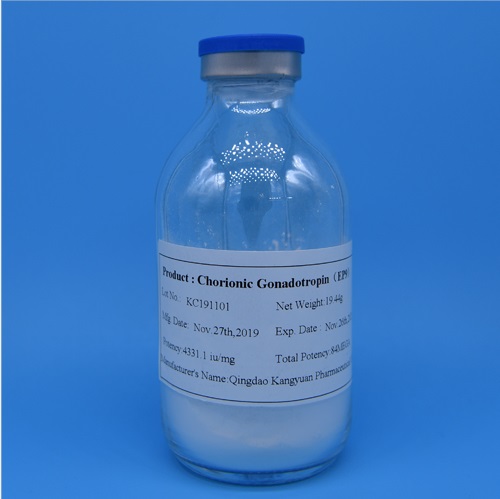Human Menopausal Gonadotropin (HMG) is a medication composed of follicle-stimulating hormone (FSH) and luteinizing hormone (LH). It is widely used in reproductive medicine to stimulate ovulation and enhance fertility. In this article, we will explore the functions, uses, and benefits of HMG.
Stimulation of Follicle Development: HMG contains FSH, which plays a crucial role in the development and maturation of ovarian follicles. HMG stimulates the growth of multiple follicles in the ovaries, increasing the chances of successful ovulation and pregnancy. This makes it a valuable tool in assisted reproductive techniques such as in vitro fertilization (IVF).

Ovulation Induction: HMG is commonly used to stimulate ovulation in women who struggle with anovulation or irregular menstrual cycles. By mimicking the natural rise of FSH and LH during the menstrual cycle, HMG triggers the release of a mature egg from the ovary, increasing the chances of conception.
Treatment of Male Infertility: HMG can also be used in the treatment of male infertility. In men with low sperm production or hormonal imbalances, HMG stimulates the production of testosterone and enhances sperm production. This can improve fertility in men and increase the success rates of fertility treatments, such as intrauterine insemination (IUI) or in vitro fertilization (IVF).
Polycystic Ovary Syndrome (PCOS): HMG is often prescribed to women with PCOS to help regulate ovulation and restore menstrual regularity. PCOS is characterized by hormonal imbalances, irregular menstrual cycles, and the presence of multiple cysts on the ovaries. HMG stimulates follicle development, promoting regular ovulation and increasing the chances of pregnancy in women with PCOS.
Customizable Dosage: One of the benefits of HMG is its ability to provide a customized dosage based on individual needs. The dosage can be adjusted according to the patient's response and can be tailored for specific treatment protocols. This flexibility allows healthcare professionals to optimize the treatment and achieve the best possible outcomes.
Improved Control and Monitoring: HMG treatment typically involves close monitoring through regular ultrasounds and hormone level assessments. This allows healthcare professionals to closely track follicle development, adjust treatment as needed, and improve the chances of successful ovulation and conception.
Combination Therapy: HMG is often used in combination with other medications, such as human chorionic gonadotropin (HCG). This combination approach further enhances the success rates of ovulation induction and assisted reproductive techniques. HCG is typically administered to trigger the final maturation of the eggs and facilitate their release from the ovary.
In conclusion, Human Menopausal Gonadotropin (HMG) is a medication that plays a critical role in stimulating ovulation and enhancing fertility. Whether used in assisted reproductive techniques, treatment of male infertility, or regulation of ovulation in women with PCOS, HMG offers a valuable solution for individuals struggling to conceive. Consulting with a reproductive specialist can help determine if HMG is suitable for an individual's particular situation and provide the necessary guidance for its proper administration and supervision.